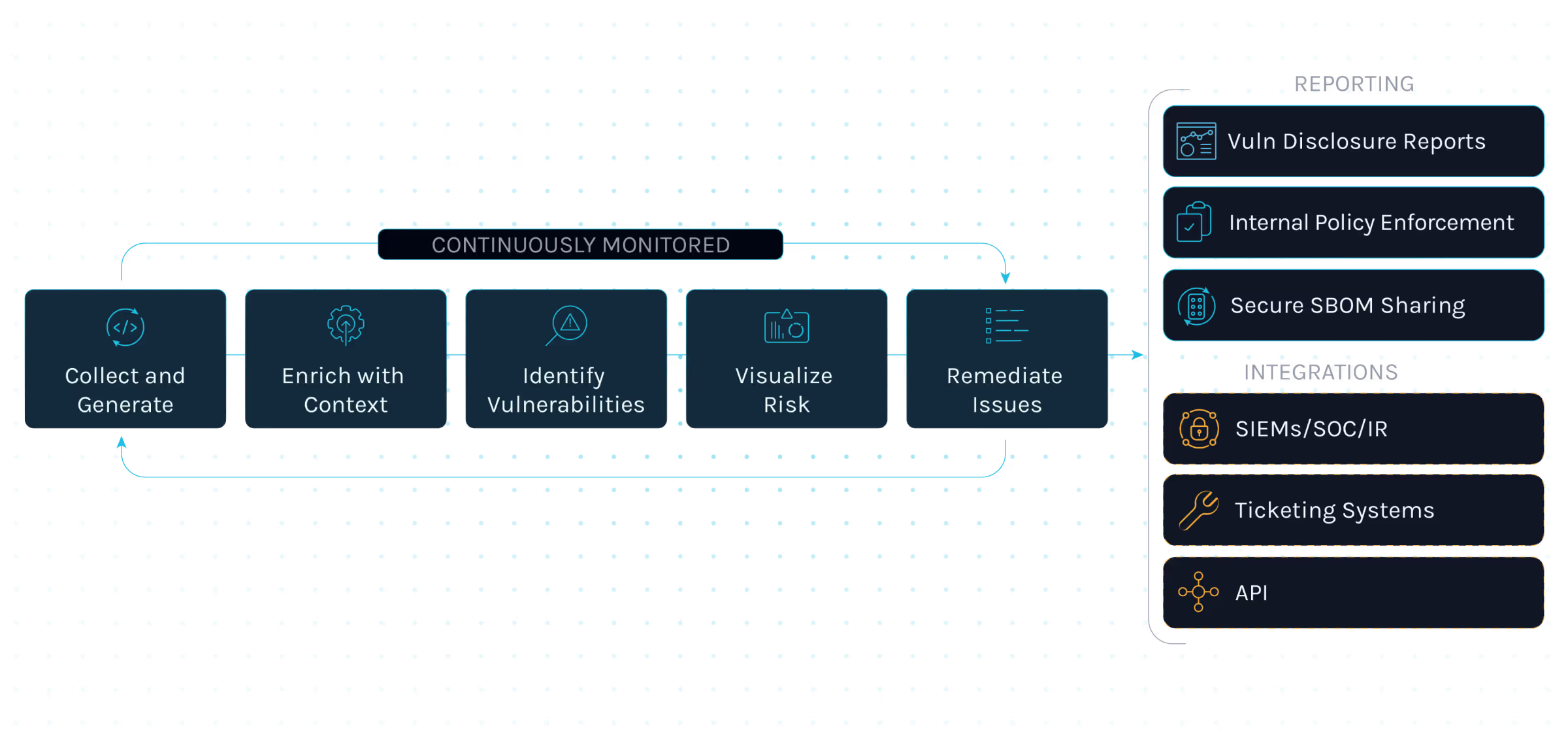Manage Risks, Vulnerabilities, and Licenses
Identify and remediate vulnerabilities in open source components before they’re exploited.
Automate detection of non-compliant or high-risk OSS licenses.
Prevent “shadow OSS” from slipping into production without visibility or approval.
Maintain an up-to-date, auditable inventory of OSS usage across your enterprise.
Manage OSS: Inventory, Risks, and Compliance
Streamlining OSS Risk Identification with Manifest
Manifest provides open source tracking as part of its broader software supply chain security platform:
- OSS Inventory
Automatically discover open source components across codebases, pipelines, and applications.
- License Compliance
Flag restrictive or incompatible licenses and enforce compliance policies automatically.
- Vulnerability Monitoring
Continuously scan OSS dependencies against CVE databases and enrich with exploitability data (EPSS, KEV).
- Unified Risk View
Integrate OSS tracking into SBOMs, supplier risk, and governance modules for a complete supply chain perspective.

FAQs
SBOM (Software Bill of Materials) management refers to the process of generating, validating, updating, and sharing an inventory of all software components in a product. Software is the only thing we buy that we don’t have a list of ingredients or safety tests for. SBOMs enable visibility, vulnerability detection, and compliance across the software supply chain. With proper SBOM management, organizations can identify risks before they affect customers or operations.
Manifest Product Security offers a real-time view into your entire software supply chain, enabling early detection of vulnerabilities, license violations, and misconfigurations. It integrates SBOM and VEX support, automates exposure reports, and helps streamline incident response, making your software more secure without slowing development.
VEX (Vulnerability Exploitability Exchange) documents provide context about whether a known vulnerability in a component actually affects your software. Manifest allows you to generate VEX in CSAF or OpenVEX formats and ingest VEX from third-party vendors, helping you prioritize what truly needs remediation.
Manifest integrates at multiple stages of the SDLC to provide real-time risk visibility and policy enforcement. We recommend customers implement Manifest at the start of the SDLC, when open-source software (OSS) and third-party software are being evaluated for use. Manifest enables developers to upload SBOMs, receive alerts on vulnerable components, and assess open-source code before use, supporting secure development without sacrificing speed.
Manifest automates SBOM validation, generates VEX, and allows secure sharing of artifacts with regulators and partners. This simplifies compliance with standards from CISA, NTIA, FDA, the EU and other regulatory bodies, reducing manual effort and demonstrating maturity in your software assurance program.
